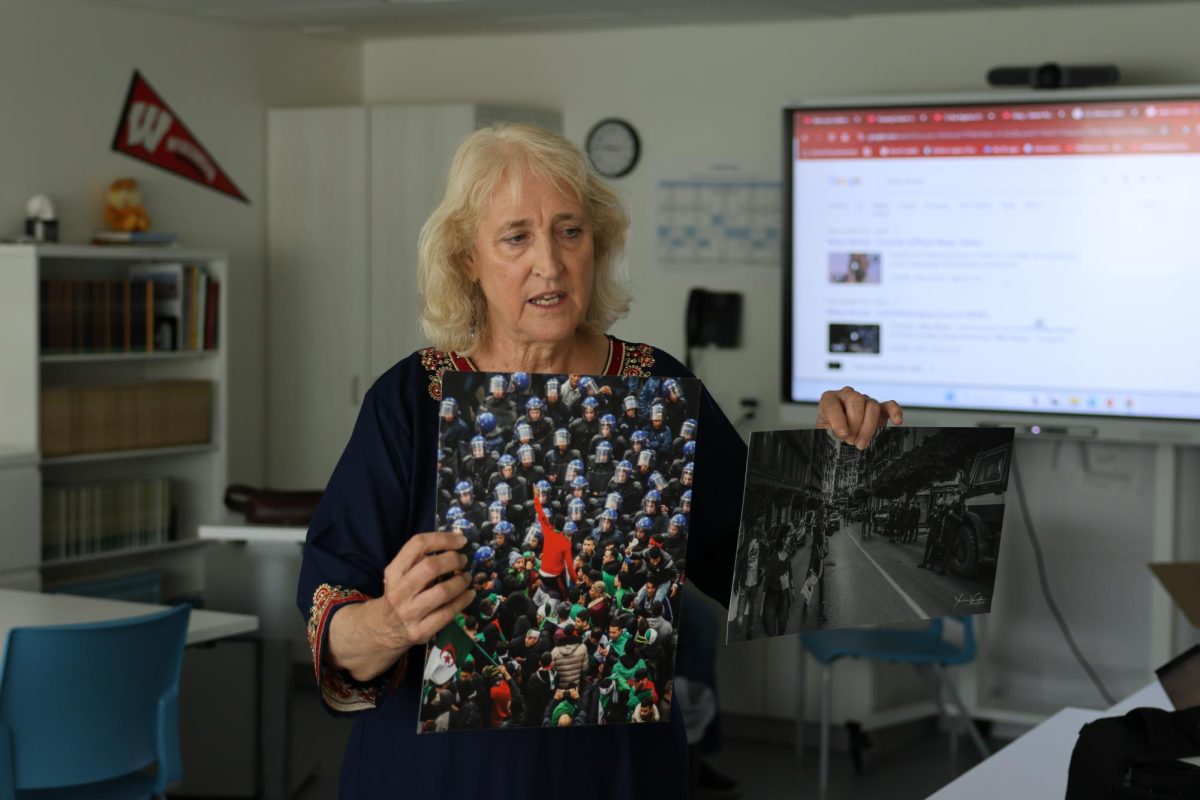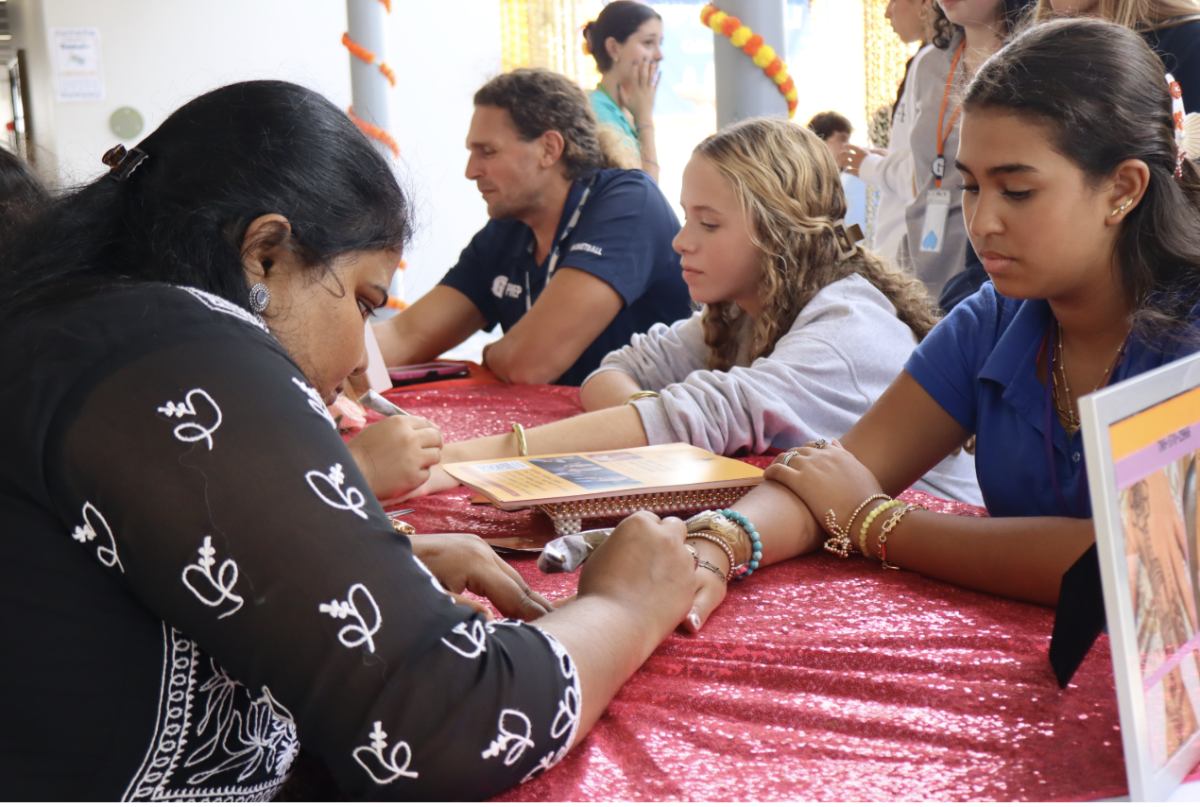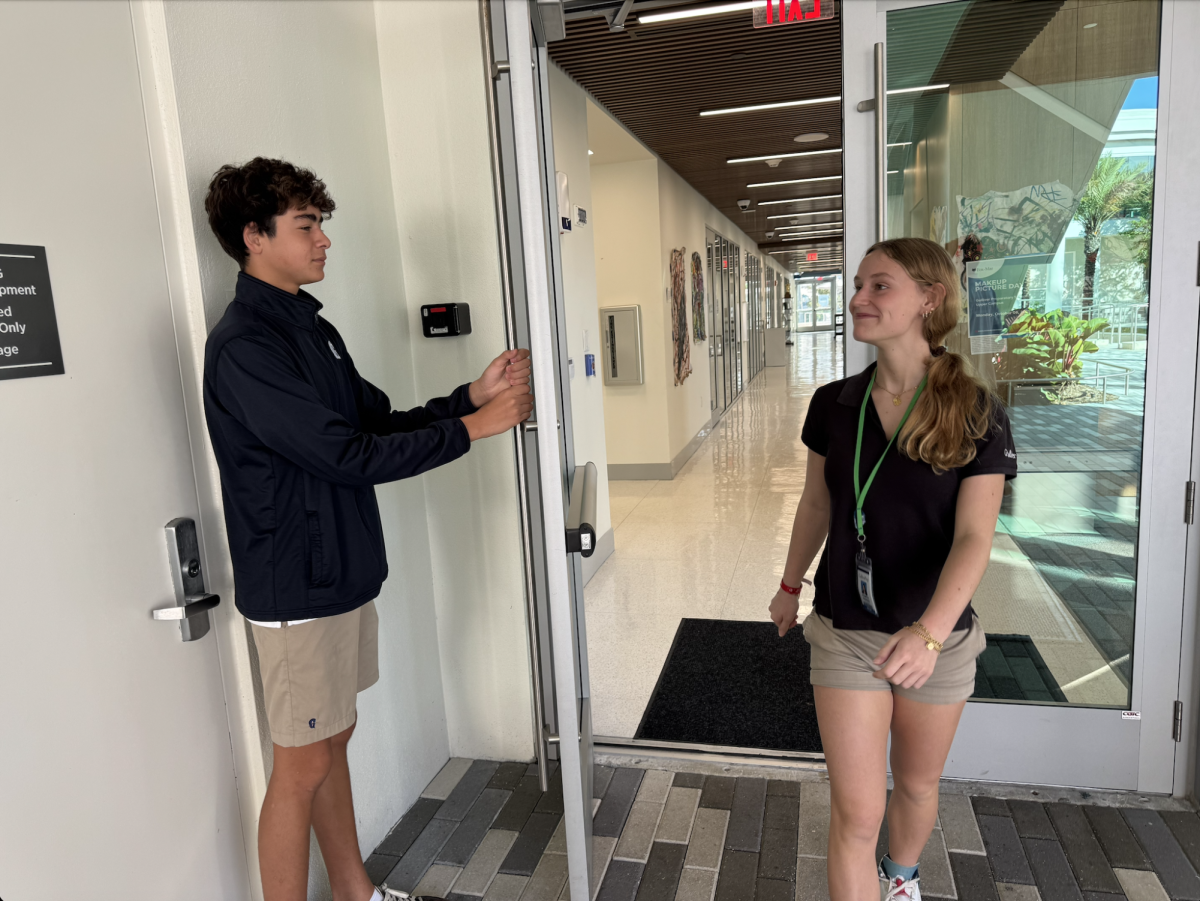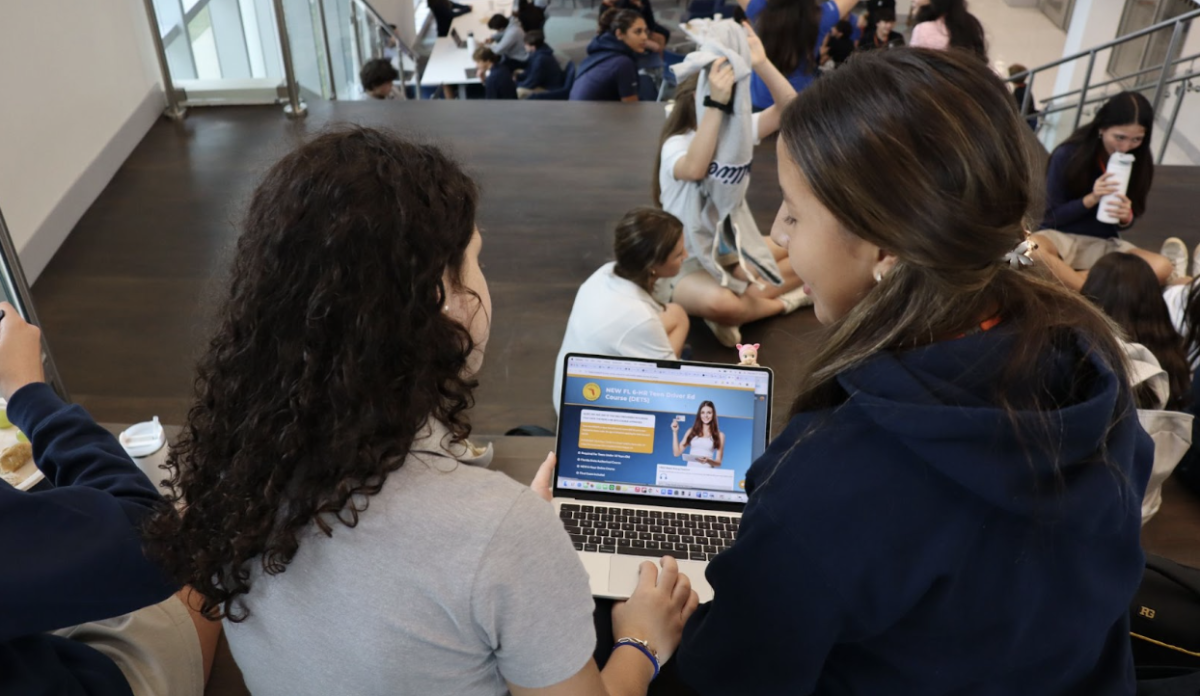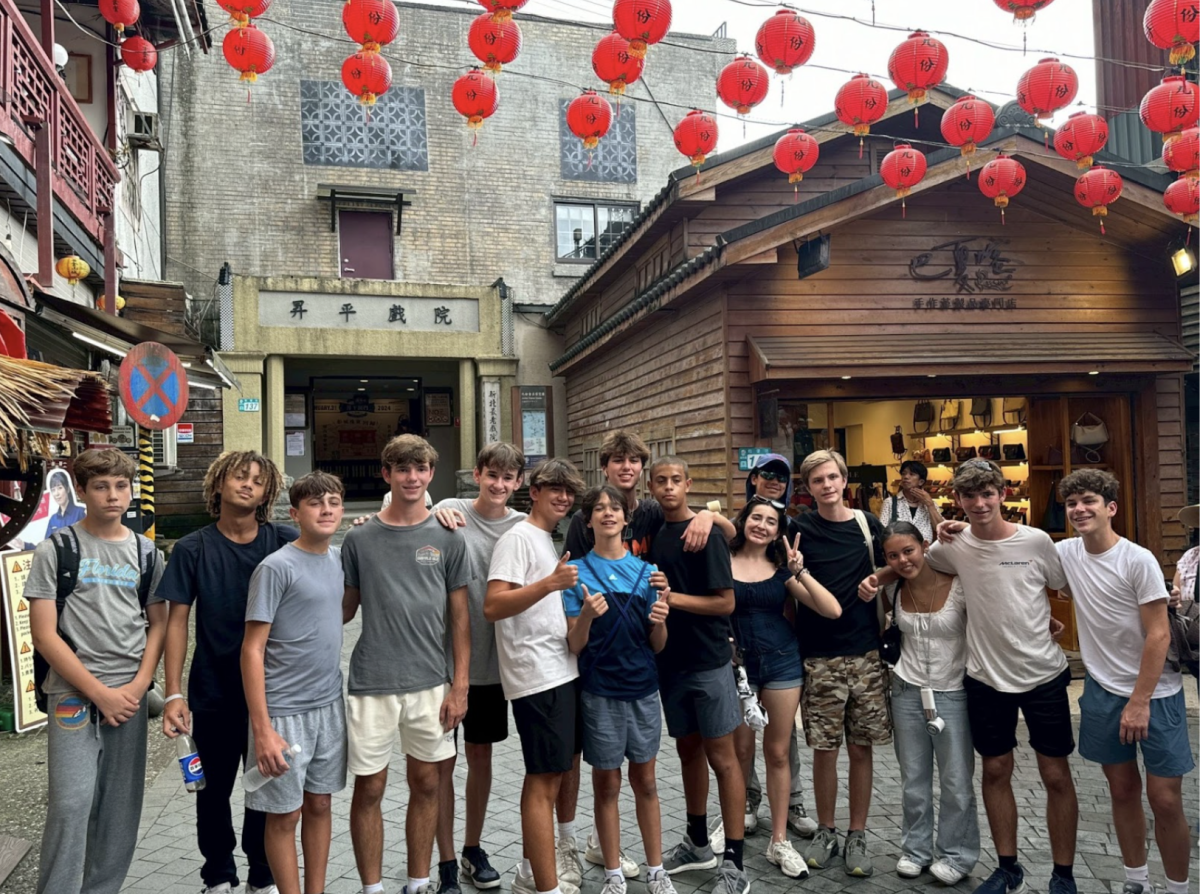On Friday, Aug. 29, former IB teacher and current cultural ambassador for the United States in Algeria, Linde Barrett, spoke to Mario CubasŌĆÖ IB Anthropology class about her experience in Algeria. Barrett was selected while still teaching at the Upper School.┬Ā
ŌĆ£I went through a very rigorous and laborious process,ŌĆØ Barrett said.┬Ā┬Ā
At the end of the process, she was offered the opportunity to teach Algerian government officials the English language. She took the job, despite admitting that she did not know a lot about the country, and the opportunity allowed her to travel, teach, and learn more about Algerian culture.┬Ā
ŌĆ£As Americans, we know so little about the country,ŌĆØ Barrett said. ŌĆ£ItŌĆÖs such a rich country, full of history, culture, resources, yet we know so little about it.”
During her time there, Barrett has also made history, becoming the first teacher to work at the Ministry of Foreign Affairs compound.
ŌĆ£I have to go through checkpoints every time I walk in or leave,ŌĆØ Barrett said. ŌĆ£ItŌĆÖs where all outside government officials stay.”
She emphasized that she is not just the first American but also the first foreign teacher to set foot on the compound.
ŌĆ£ItŌĆÖs all a part of the modernization; they’re trying to come up to globalization,ŌĆØ Barrett said.
According to Barrett, one of the main reasons she got the position was her teaching style, which emphasizes collaboration through projects. Her main goal was to teach her students the four componentsŌĆöspeaking, reading, listening, and writingŌĆöwith the ultimate goal of achieving fluency. Barrett explained that she was also learning from her students.┬Ā
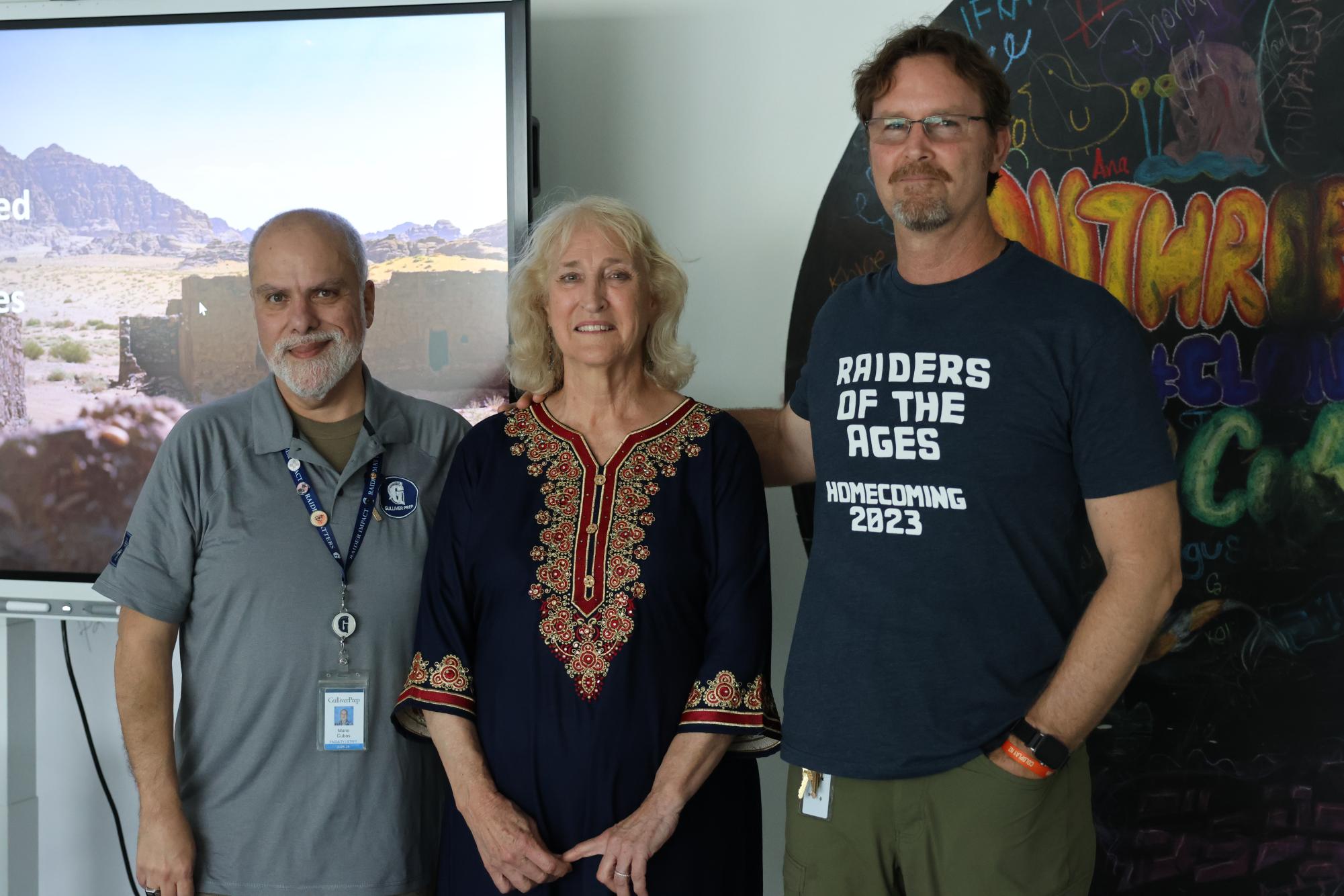
ŌĆ£Even though IŌĆÖm teaching them the big four of the language, part of the mutual exchange is IŌĆÖm learning about who they are and where they come from,ŌĆØ Barrett said. ŌĆ£IŌĆÖm impressed with all the years they have given towards their government and learning the language,ŌĆØ Barrett said.
For her students, learning English was of the utmost importance. In 2022, the country began its shift away from its French roots, naming English as the countryŌĆÖs secondary language.
ŌĆ£Up until then, all the educated people were educated in French for years, and now they are being told they canŌĆÖt use it,ŌĆØ Barrett said.
In contrast to popular belief,┬Ā people in Algeria and around the world believe in her words that ŌĆ£English is the universal language, itŌĆÖs the language of contracts and negotiations,ŌĆØ Barrett said.
Ever since the country gained independence from France in 1962, relations have been strained. In the current era, however, the nation is trying to get rid of its French history and create its own national identity, according to Barrett.┬Ā
ŌĆ£The President said itŌĆÖs {French} the language of the oppressors,ŌĆØ Barrett said.┬Ā
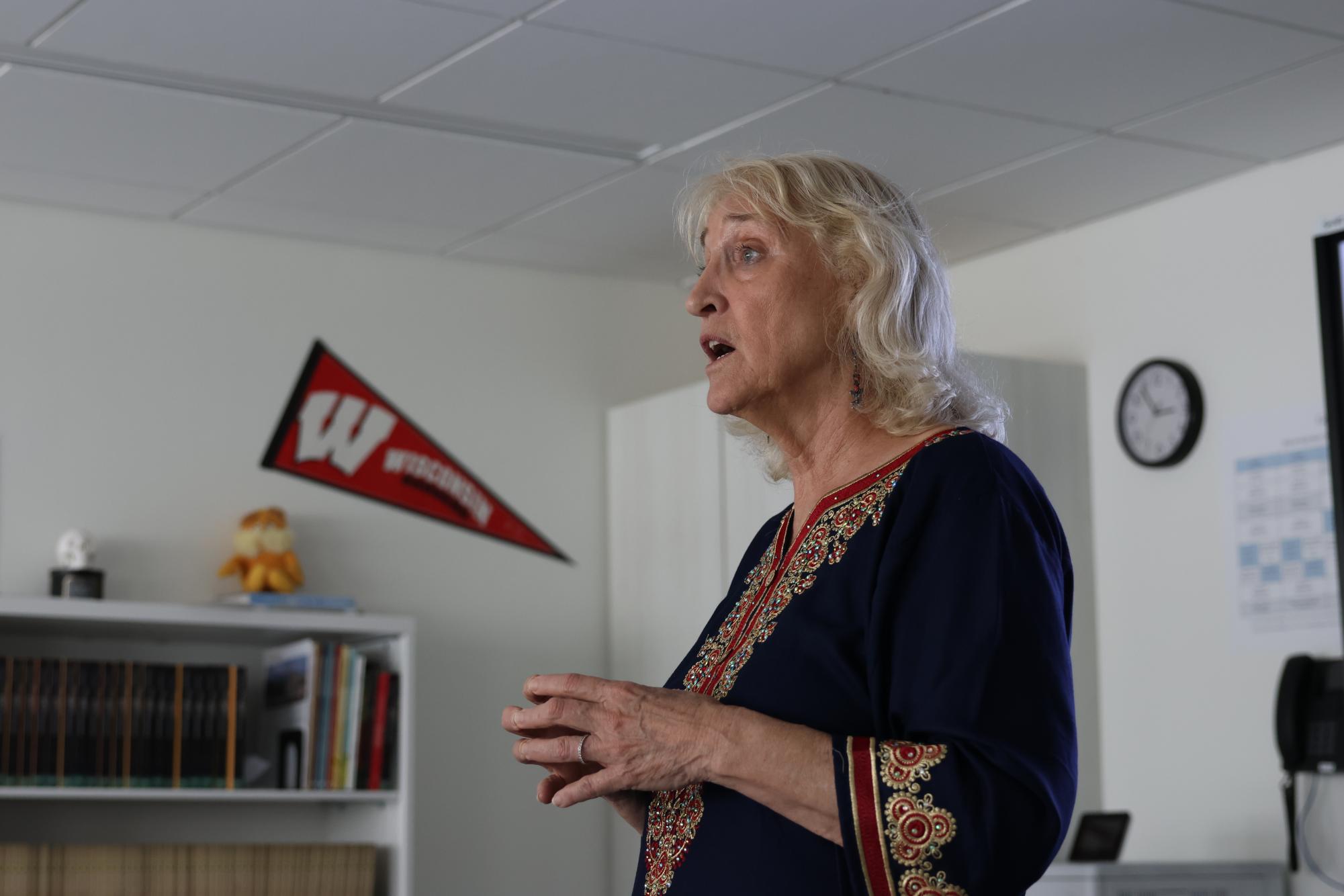
During her presentation, Barrett discussed how the nationŌĆÖs new identity is one built upon the ideals of the past and the ideas of the future.┬Ā An example of this can be found in the Algerian music scene. Barrett showed the class songs such as ŌĆ£Mdou MoctarŌĆØ by Imouhar, a mix of traditional Algerian music and rock music, and ŌĆ£Desert RoseŌĆØ by Sting and Algerian artist Cheb Mami. Both songs have been seen as a call to action for the nation to find its identity and modernize, while still keeping its sacred traditions.┬Ā
ŌĆ£ItŌĆÖs this whole mixture of different peopleŌĆ” shaping the nation today,ŌĆØ Barrett said.
According to Barrett, Algeria is similar to the U.S. as a “melting pot” of cultures.
ŌĆ£You have many different groups like the Amazigh, the Arabs, the Kablee, and the Touareg, known as the blue men,ŌĆØ Barrett said.┬Ā
For Mrs. Barrett, her time in Algeria was more than just a teaching job; it gave her the chance to explore and learn new cultures, meet new people, and make history.┬Ā

